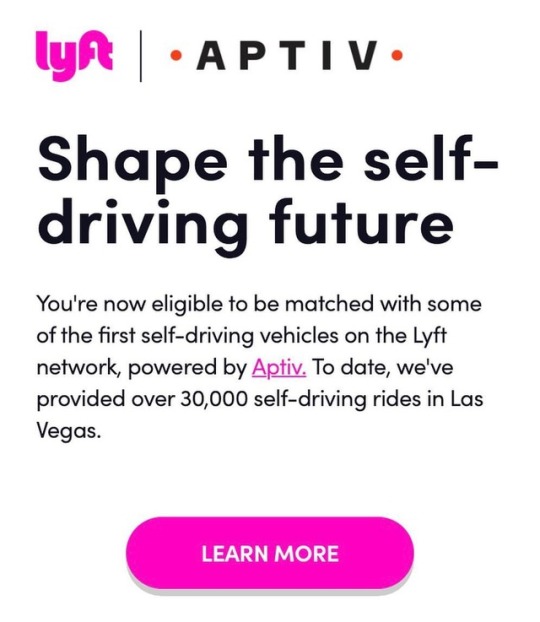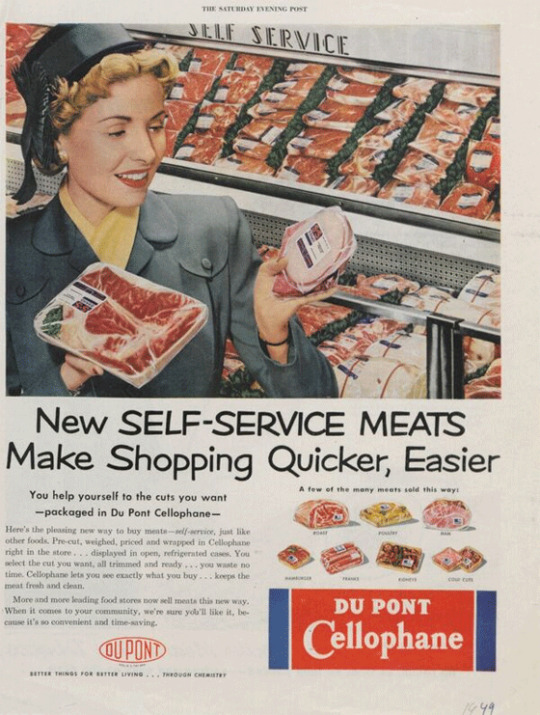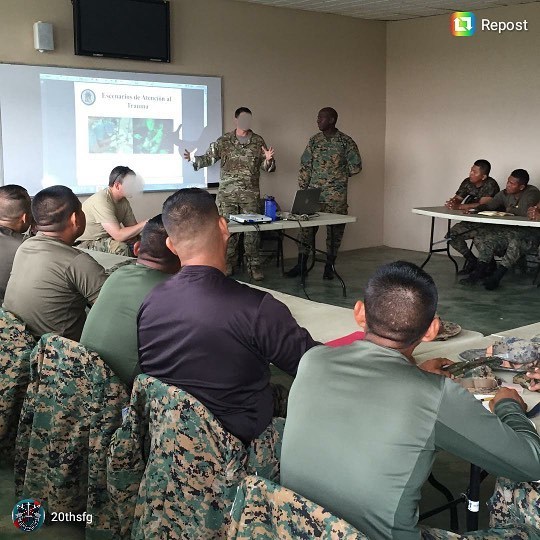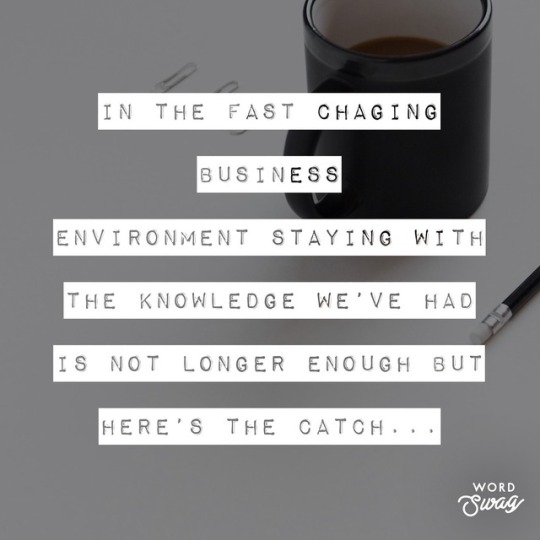#workingknowledge
Text
FBU Club nr 55 Dati, Informazioni, Scenari, con Antonio Belloni
0 notes
Photo

And then I’ve just started requesting a #Lyft then they offered me the #Driver-less experience...man is exciting as it sounds no matter this is not fully invented yet, a lot of thoughts just came in, as in the free time to read, browse and do some work while being driven, even having meetings while on the road, then I just thought of how the #insurance companies need to reinvent themselves so that they can deal with #liability in a #driver-less car crash, who’s to be blamed? What if two of them collide? Then there are still a lot of questions on my head on what are the industries besides the car and transportation industries to be disrupted??? Is a big change ahead of us, how can we get ready? What would be the new set of jobs??? What would be the skillset required? #futureofjobs #skillsetrequired #workingknowledge #InformationOverload #DisruptiveTechnologies #TheWorldwelivein (at Las Vegas, Nevada) https://www.instagram.com/p/BwfhkZEh-gT/?utm_source=ig_tumblr_share&igshid=pzff0x0vjyiq
#lyft#driver#insurance#liability#futureofjobs#skillsetrequired#workingknowledge#informationoverload#disruptivetechnologies#theworldwelivein
0 notes
Photo

How Cellophane Changed the Way We Shop for Food
Don’t feel bad if you haven’t spent much time considering cellophane. It’s deliberately transparent, after all. You’re meant to consider whatever it’s wrapping instead.
Yet, it turns out that cellophane has a story worth telling. A new research paper exposes the historical significance of the packaging material, focusing on its key role in the development of self-service merchandising systems in American grocery stores, but also revealing how cellophane manufacturers tried to control the narrative of how women buy food.
“Cellophane changed how people shopped,” says Ai Hisano, the Harvard-Newcomen Fellow in Business History at Harvard Business School and author of the paper Cellophane, the New Visuality, and the Creation of Self-Service Food Retailing.
Hisano is at work on a wide-ranging book about the history of creating the color of foods, which has been the focus of her research during her yearlong study at HBS. She’ll present some of her findings at a June 29 workshop called “Capitalism and the Senses,” which “brings together scholars from various disciplines, including marketing, history, and anthropology, to explore how businesses developed marketing strategies to appeal to consumers’ senses from the nineteenth century to today.”
Cellophane gets an entire chapter in Hisano’s book. As she explains in the paper, cellophane packaging let food vendors manipulate the appearance of foods by controlling the amount of moisture and oxygen that touched a product, thus preventing discoloration. “Cellophane played a big part in how the color of food started to be controlled and standardized,” she says.
Read more.
#harvard#harvarduniversity#harvardbusinessschool#hbs#bschool#hbswk#workingknowledge#Aihisano#cellophane#research#history
5 notes
·
View notes
Photo


(via Why Managers Should Reveal Their Failures - HBS Working Knowledge - Harvard Business School)
If you want to get your messages through to employees, be ready to confess your own management shortcomings, Alison Wood Brooks counsels.
By Dina Gerdeman
If you’re a business leader who oozes achievement, sprints up the corporate ladder, and earns big bucks, your co-workers probably resent you to some extent. New research says high-achievers can win over their colleagues with a simple approach: by sharing the failures they encountered on the path to success.
“If you’re highly successful, your achievements are obvious. It’s more novel and inspiring for others to learn about your mistakes,” says Harvard Business School Assistant Professor Alison Wood Brooks.
“What’s exciting about this research is that we’re trying to chip away at the resentment that comes with envy and move people toward admiration instead,” she says. “One way to do that is to acknowledge your struggles or shortcomings.”
Brooks co-wrote the February 2018 working paper, Mitigating Malicious Envy: Why Successful People Should Reveal Their Failures, with HBS doctoral students Karen Huang and Nicole Abi-Esber and professors Ryan W. Buell, Brian Hall, and Laura Huang.
Confessing our setbacks is counterintuitive; we tend to talk up achievements and hide failures. But successful leaders who only crow about achievements can come across as egotistical showoffs, stirring up “malicious envy” in their peers.
”… we’re trying to chip away at the resentment that comes with envy and move people toward admiration instead.”
Malicious envy is a destructive emotion that makes people feel inferior by comparison, even to the point of wishing they could tear down the successful person. As prior research has shown, this type of envy can be toxic in the workplace, stifling worker productivity, leading employees to behave less cooperatively, interfering with group cohesion, and making people feel more justified in behaving unethically.
“When people feel malicious envy, they engage in counterproductive work to harm other people,” Brooks says. “They tend to undermine others and try to slow them down.”
Revealing failures won’t tarnish your image
The HBS team set out to test for levels of malicious envy in different settings and to figure out strategies for tamping it down. In one online study, participants were asked to read a biography by a fictitious peer who had achieved professional success, for example by landing a prestigious, lucrative job. People who read only about the person’s achievements felt significantly more malicious envy than others who read a few extra lines describing the person’s professional failures.
The results of two similar online studies also yielded an important insight for successful people who share their failures: Colleagues have no less admiration for a leader’s accomplishments if they know about these failures, nor does it affect their perception of the person’s status.
“Even after revealing their struggles or failures, high achievers still look good,” Brooks says.
She cautioned that this effect works only for people who have reached at least moderate success. “If you’re a low-status intern, for example, you don’t need to talk as freely about your failures—not because it’s harmful—but because people don’t tend to feel envious of you in the first place.”
In another experiment, the researchers studied a different environment: a competition in which entrepreneurs vying for startup funding pitch their projects to potential investors. (The idea was to determine the effects of envy in a field setting, not whether those feelings affected the chances of winning funding.)
Some entrepreneurs listened to what they thought was an audio recording of a fellow competitor’s pitch where the person gushed only about her successes: “I have already landed some huge clients—companies like Google and GE. I’ve had amazing success, and in the past year I have single-handedly increased our market share by 200 percent.”
Meanwhile, others listened to a pitch where the entrepreneur also fessed up to facing roadblocks by adding, “I wasn’t always so successful. I had a lot of trouble getting to where I am now … When I started my company … I also failed to demonstrate why potential clients should believe in me and our mission. Many potential clients turned me down.”
The study results suggest that listeners jump to different conclusions about a leader depending on whether the person shares slipups or not. Listeners who heard the entrepreneur talk only about her achievements automatically attributed the person’s success to talent alone, and that seemed to make them feel badly about themselves by comparison. They also saw this speaker as arrogant, filled with “hubristic pride,” which turned them off.
“Even after revealing their struggles or failures, high achievers still look good.”
On the other hand, participants who heard the entrepreneur disclose previous failures believed the person had more “authentic pride” and came across as confident rather than arrogant. They also got the impression that this entrepreneur put a lot of effort into overcoming obstacles, and that made them feel less malicious envy and more “benign envy.” Benign envy brought out warmer, fuzzier feelings, with listeners not only believing the entrepreneur was deserving of success, but also feeling motivated to improve their own performance.
How to share your faults
The research puts more credence behind interpersonal emotion regulation—when one person deliberately shapes another person’s emotional reactions during a social interaction.
We can have a lot of control over how other people feel and react to us, says Brooks. “Some people might be uncomfortable about exerting that control strategically because it might seem manipulative. But the counterargument to that is that we do it all the time.”
For example, when we choose to be polite or rude, or to give someone else compliments or not, it’s all interpersonal regulation. “If we’re doing these things anyway, why not do it in ways that are wise, productive, and kind?”
Managers can be particularly easy targets of envy, especially when they move quickly through fast-track promotion programs and their colleagues don’t. So, in discussing a promotion or a work-related reward, a manager might consider tossing in a setback encountered earlier in the person’s career to appear more confident and credible, rather than self-centered.
Other workers can relate to facing obstacles, so hearing about the successful manager’s missteps can not only decrease internal competition among colleagues, but motivate other employees to strive for success themselves. Also, in group meetings, managers could consider “humanizing” members of the team by encouraging people to share their mistakes as a team-building exercise to improve communication and collaboration.
“You can motivate your team to work harder by doing this,” Brooks says. “I know I have felt that way seeing other women who have succeeded. I want to know their tricks, how they navigated the minefields, and what mistakes they made along the way—that will help me avoid those same mistakes.”
The humble job applicant
This strategy works for job-seekers, too. If you’re asked to describe your greatest weakness in an interview, don’t use the obvious “I work too hard” response. Instead, sincerely relate a mess up and what you learned. “It’s a great opportunity to show your honesty and vulnerability,” Brooks says.
The master of the public failure strategy might be Princeton University psychology professor Johannes Haushofer, who posted a “CV of failures (pdf)” on his professional website in 2016. His laundry list of defeats included degree programs he didn’t get into, research funding he didn’t earn, and papers that were rejected by academic journals.
“Most of what I try fails, but these failures are often invisible, while the successes are visible,” Haushofer wrote on his CV. “I have noticed that this sometimes gives others the impression that most things work out for me. As a result, they are more likely to attribute their own failures to themselves, rather than the fact that the world is stochastic, applications are crapshoots, and selection committees and referees have bad days.”
The CV earned plenty of press attention and applause from fellow professionals, which doesn’t surprise Brooks.
“People find you more humble and likable when you not only reveal your successes and accomplishments, but your struggles and shortcomings, too,” she says. “If we want to see positive workplace outcomes, we shouldn’t underestimate how important it is to be seen as humble, grounded, and well-liked.”
[Entire article — click on the title link to read it at HBS Working Knowledge.]
***
You’re working on your goals, and your team’s goals. We can help you spring into action and develop a real plan that you can implement in a smart way, so you’ll start seeing results immediately, before you feel discouraged. If you feel that you’ve already gone off-track, we can help you get your focus, courage, and motivation back.
At Creative Sage™, we often coach and mentor individual clients, as well as work teams, in the areas of change management, building resilience, making personal, career or organizational transitions — including to retirement, or an “encore career” — and facilitating development of leadership, creativity and collaboration capabilities. We also work with clients on work/life balance, finding purpose and meaning, focus and productivity issues, and how to present themselves and their ideas more effectively in professional situations.
We guide and mentor executives, entrepreneurs, intrapreneurs, artists, and creative professionals of all generations, to help them more effectively implement transition processes, and to become more resilient in adjusting to rapid changes in the workplace — including learning effective coping techniques for handling failure, as well as success. We work with on-site and virtual teams.
Please do not hesitate to contact us if you would like to discuss your situation. You can also call us at 1-510-845-5510 in San Francisco / Silicon Valley. Let’s talk! An initial exploratory phone conversation is free. When you talk with me, I promise that I’ll always LISTEN to you with open ears, mind and heart, to help you clarify your own unique path to a higher vista of success.
~Cathryn Hrudicka, Founder, CEO and Chief Imagination Officer of Creative Sage™, Executive Coach, Consultant, and Mentor.
***
#harvardbusinessschool#workingknowledge#humility#mistakes#sharingshortcomings#resentment#leadership#management#mgmt
0 notes
Photo

#specialforces #medicalsergents #18d are considered to be the #best #firstresponders / #traumamedical #technicians #intheworld . Though they’re #trained primarily on #traumamedicine they also have #workingknowledge in #dentistry #veterinarymedicine #publicsanitation #waterquality & #optometry. Here a #20thsfg #18d is #teaching #panamanian #medics in #spanish If you #havewhatittakes then #contactmenow #pm #dm #text #8284892646☎️ #warriorswanted #yourarmyreservecareercounselor #brotherhood @blueridgecommcollege @montreatcollege @warrenwilsoncollege @marshillu @UNC_Asheville @rhs_insta_2021 @bhsbluedevils @brevardhigh @whhs_falcons @polkcountyhighschool @brevardcollege (at Brevard High School) https://www.instagram.com/p/BtDhJHIBHZD/?utm_source=ig_tumblr_share&igshid=1uxgs4megq5py
#specialforces#medicalsergents#18d#best#firstresponders#traumamedical#technicians#intheworld#trained#traumamedicine#workingknowledge#dentistry#veterinarymedicine#publicsanitation#waterquality#optometry#20thsfg#teaching#panamanian#medics#spanish#havewhatittakes#contactmenow#pm#dm#text#8284892646☎️#warriorswanted#yourarmyreservecareercounselor#brotherhood
0 notes
Text
Jobs in Kenya: 12 Vacancies advertised in The Daily Nation Newspaper at LVCT health - Statistician, Monitoring and Evaluation Officers, ICT Officer
Jobs in Kenya: 12 Vacancies advertised in The Daily Nation Newspaper at LVCT health – Statistician, Monitoring and Evaluation Officers, ICT Officer
Jobs in Kenya: The following job vacancies were advertised in the Daily Nation newspaper by LVCT health on 18th January, 2017. Take advantage of these career and employment opportunities. Apply right now
1.Statistician
Qualifications:
1.Bachelor’sdegree in biostatistics, statistics or epidemiology (related fields will beconsidered)
2.Workingknowledge of epidemiologic concepts and methodology
3.Exp…
View On WordPress
0 notes
Photo

New book. A collaboration with Christopher Roeleveld of Working-Knowledge. More pictures in the Store soon.
9 notes
·
View notes
Photo

... be aware that the world is changing faster than our own ability to adapt to it and it feels that #content and #knowledge are overruning us, it feels just like an #information #overload plus just add an interesting additional ingredient to this already explosive mix, the #fakeness of the Internet content, information and knowledge and the special ability that allows them to be highly sensitive to commercial manipulation ( Paid Ads ) right before they get to us..., so how to #upskill ourselves in a fast pacing flow like this in a very reliable and effective way??? More to come... #Digital #Content #Knowledge #InformationOverload #CustomerExperience #DigitalAnxiety #WorkingKnowledge #Skillset #Work #Jobs #Business #Labor #people #FakeInternet (at New Jersey) https://www.instagram.com/p/Btq6uGoBfrq/?utm_source=ig_tumblr_share&igshid=moz60ocb892a
#content#knowledge#information#overload#fakeness#upskill#digital#informationoverload#customerexperience#digitalanxiety#workingknowledge#skillset#work#jobs#business#labor#people#fakeinternet
0 notes
Photo

How an African History Scholar Became a Modern Righter of Wrongs
Recently, a first-year MBA student at Harvard Business School was overheard gushing to a friend about a professor’s deep knowledge of Africa’s past.
He was talking about Caroline M. Elkins, a visiting professor at HBS who teaches in the School’s FIELD (Field Immersion Experiences for Leadership Development) global immersion course, which sends groups of students all over the world to get first-hand experience doing business in an unfamiliar location. This past May, Elkins and her students traveled to Cape Town, South Africa, where they engaged with 10 global partners on a dozen different design projects.
A renowned scholar of colonial-era African history, she isn’t the most obvious candidate for teaching modern business lessons to future executives. But Elkins, who has spent years conducting intensive field research in rural Kenya and other parts of the former British Empire, argues that there are clear parallels between academic knowledge and business intelligence.
Read more.
#harvard#harvarduniversity#harvaardbusinessschool#hbs#professor#carolineelkins#FIELD#hbsfield#global#mba#mbaprogram#africanhistory#history#education#workingknowledge#hbswk
5 notes
·
View notes
Photo

10 Harvard Business School Research Stories That Will Make Your Mouth Water
Food used to be just sustenance, but now it's news. The president of the United States falls for McDonald's and KFC. In Portland, resentment is growing over white street vendors who sell ethnic foods. Ikea is starting a food incubator for entrepreneurs. Food, it seems, is trending.
The food industry is at the heart of much research at Harvard Business School. Here is a sampler of stories about restaurants, chefs, food science, and more.
Read more.
#harvard#harvardbusinessschool#harvarduniversity#hbs#businessschool#bschool#hbswk#workingknowledge#food#foodindustry#research
4 notes
·
View notes
Link
Many jobs involve completing a series of sequential, independent, prearranged tasks. Physicians see patients; teachers grade papers; insurance agents process stacks of claims.
In the interest of productivity, some organizations have a predetermined scheduling policy, requiring that tasks be completed in a particular order. But in many instances, workers have more freedom over their workday: They can follow the prescribed schedule or else choose to deviate, completing tasks in a different order at their own discretion.
It’s easier than ever for managers to grant that freedom, thanks to technological advances like internet connectivity, mobile devices, and software. Autonomy is a much-touted benefit at many organizations, and it’s nice to believe that we each know the best path to our own optimal productivity. But new research shows that deviating from an organization’s recommended schedule tends to erode productivity, even among the most experienced workers.
Read more.
#havard#harvardbusinessschool#hbs#HBSWK#workingknowledge#roberthuckman#research#productivity#productive
6 notes
·
View notes
Photo

What happens when you just listen to someone who mentioned a fancy new #Buzzword, is that just sparked the need for you to #Googleit? To learn more about it? As it is related to your work? Just because it is reminding you of something you heard somewhere else and now you just remember it but not sure how you got there? What if this is related to something you want to learn or something you need to thrive at work or to solve for something else? Going to #Google really solves your specific need of #learning, #upskilling? Your #workingknowledge has being improved? Really? With all the #Content Commercially-Driven? Is that the way it works for you? Allowing #Google or, just step back here, the Companies paying #Google to catch your #Attention and drive you into a Content that may be useless for your needs??? just a thought as it takes a while ‘til you can filter it several times do more research and get a decent set of valuable and reliable resources... (at New Jersey) https://www.instagram.com/p/Brkr-qCgmfH/?utm_source=ig_tumblr_share&igshid=1iq5je56nxhj4
0 notes
Link
Startups often struggle to find their first customers—especially in the sharing economy, where survival depends on securing users on both the supply and demand sides. No surprise, then, that our readers flocked to a story about the early days of three wildly successful two-sided platforms. “How Uber, Airbnb, and Etsy Attracted Their First 1,000 Customers” was the most-read story on Working Knowledge in 2016.
Other popular topics among our readers included workplace communication, negotiation, white-collar crime, and, of course, the votes that rocked the world—both Brexit and Donald Trump attracted lots of attention. Here are the year’s 10 most popular research-related stories, columns, and op-eds on Working Knowledge.
#harvard#harvarduniversity#workingknowledge#hbswk#Thales Teixeria#John Quelch#Eugene Soltes#Christoper Stanton#Julia Austin#Lynda Applegate#Timothy Butler#Joseph Badaracco#Bill George#research#professors#business#leadership#adivce#entrepreneurs#entrepreneurship#Brexit#negotiation#Donald Trump#Uber#Airbnb#Etsy#startups
16 notes
·
View notes